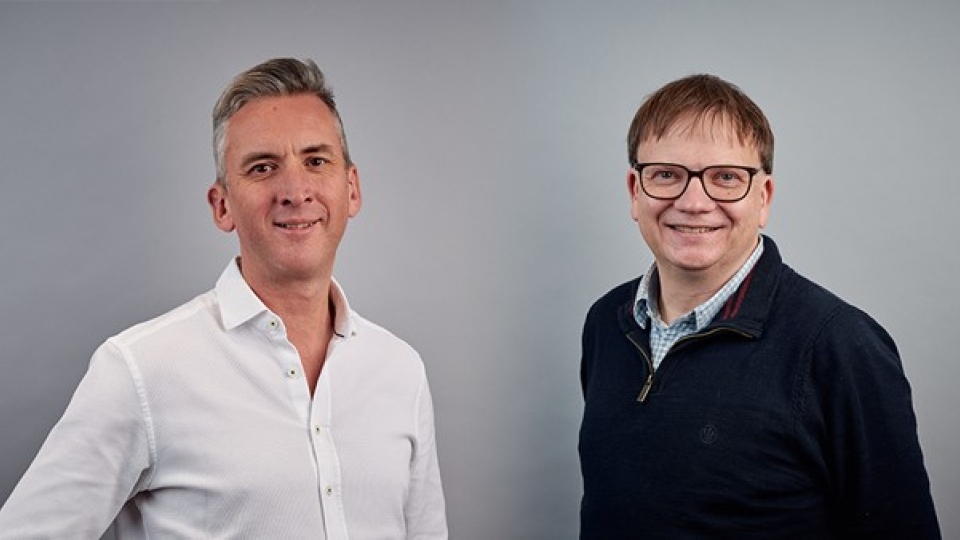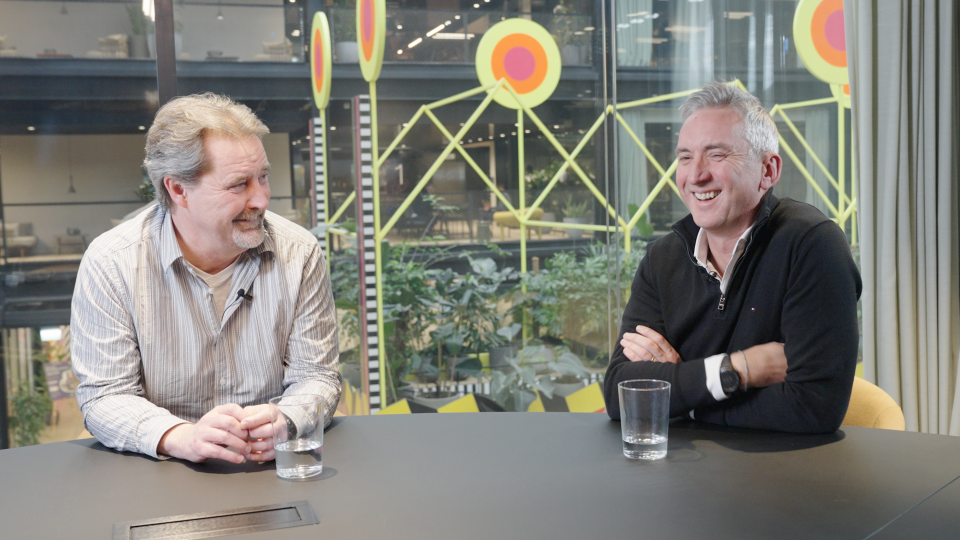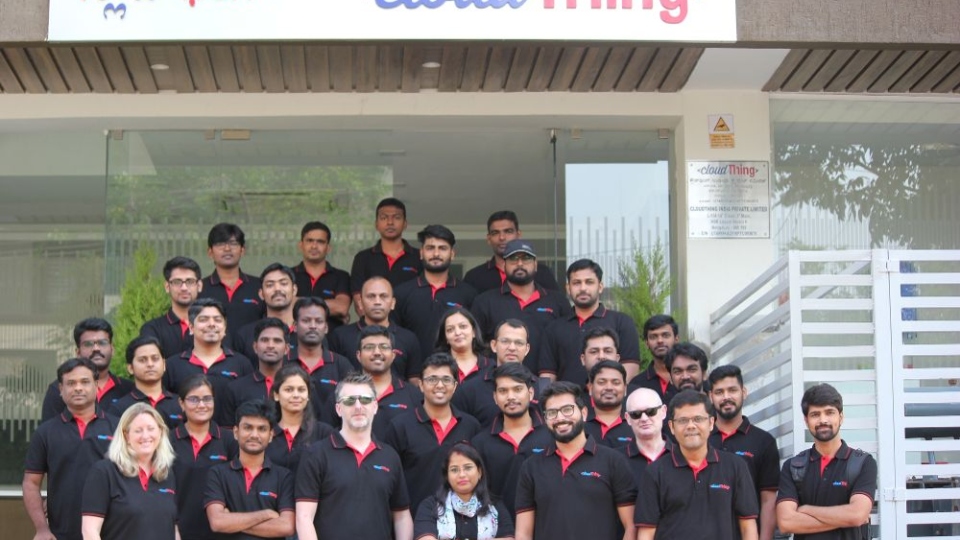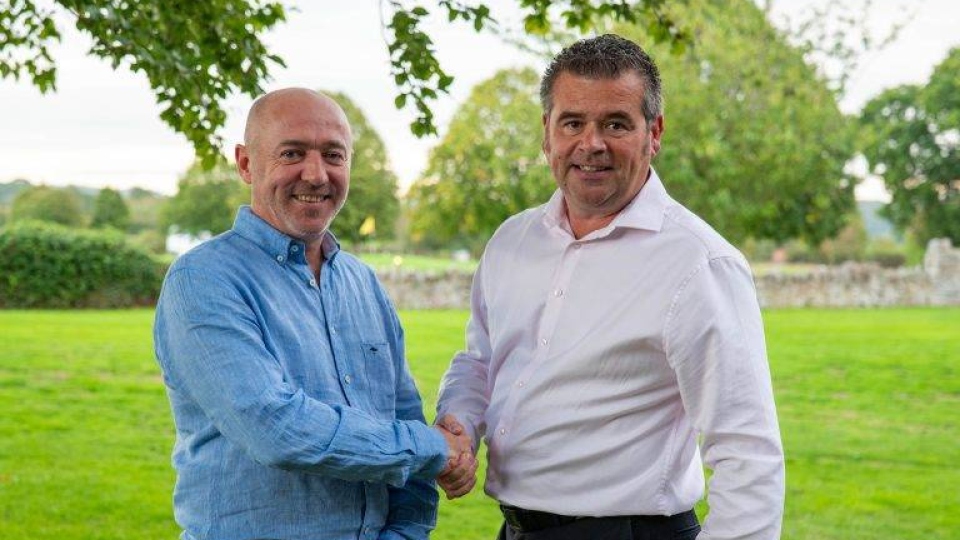
Richmond-based MSP Kerv is gearing up for another year of further expansion after recently securing a new investment deal with Bridgepoint Development Capital (BDC), according to CEO Alastair Mills (pictured left) and CFO Rufus Grig (pictured right), who are looking to catapult its £100 million turnover and £20 million EBITDA by two or threefold.
BDC’s investment in Kerv in January this year prompted the exit of Lloyds Bank's private equity arm LDC, a major backer of the company’s growth and acquisition strategies since its founding in 2020 following the merger of three cloud businesses.
This change in equity partners, however, has not slowed the firm’s progress, according to Mills. “The timing aligns with the typical private equity cycle, so it was always expected that LDC would exit at some point,” he says. “We're on the verge of closing our third year with an 30% organic growth. It's been quite a successful start.
“We've been in discussions with several potential investors for a while now, and about a year ago, we concluded that Bridgepoint would be the ideal partner for us. Bridgepoint have got a reputation for being really good partners at backing businesses in the IT digital space and we're culturally really well aligned. We’re part of a 1.6 billion fund, and our experience with LDC has been incredible as they supported us in our initial phase. However, to escalate our £100 million revenue and £20 million EBITDA by two or three times, we needed a larger equity partner. Bridgepoint provides the scale we were seeking.”
Under LDC's investment, Kerv has expanded through the acquisition of 10 entities, the latest being the digital transformation specialist Worth Systems in November last year. Over the past three and half years, the firm has also significantly grown its six technology practices: Kerv Transform, Kerv Collaboration & Compliance, Kerv Experience, Kerv Digital, Kerv Connect, and Kerv Consult.
“They've all grown double digits over the last year,” Mills notes. “We’ve seen growth in Kerv Digital within the Microsoft ecosystem, particularly in Dynamics, Power Platform, and the recent Co-pilot releases. Similarly, Kerv Experiences has been a crucial part of the year for Genesis in the cloud sector, and we believe our investment in this area is well-placed. Additionally, our collaboration and compliance practice, which focuses on compliant messaging solutions for the financial services sector, has also seen substantial growth.”
Based on its sales in the past year, around 25% resulted from collaborations between different practices. “This includes direct cross-sales,” Grig says. “Sometimes it's a 'powered by' approach, where one practice develops a solution that another practice then markets. Or it can be a joint effort, like Kerv Digital working with Kerv Experience to bring a combined proposition to the market. Essentially, a quarter of our new sales now involve solutions that combine the expertise of two practices, and we aim to maintain this momentum.”
Cost synergies and culture
Mills emphasizes that Kerv's growth is driven by its distinctive business model, focusing on "cost synergies" when it merges with another business. To date, Kerv has “inherited 400 employees through its 10 acquisitions” and, contrary to reducing numbers, “invested in all those businesses,” growing from 400 to 700 employees and creating 300 new jobs.
“We're very focused on organic growth piece,” he emphasised, explaining, “When we look at businesses, we're keen to understand why they're successful.” Adopting a cautious approach, he added, “Our first rule is 'do no harm' and to nurture these brilliant businesses.”
He further clarified Kerv's acquisition criteria, stating, that it buys businesses targeting the right customer segments – mid-market, enterprise, and public sector. “We're not interested in companies with £10 million revenue selling to 1000 customers; we need those with complex requirements. We're buying companies that are growing organically, where being part of Kerv can enhance that growth.”
Technology compatibility, focusing on platforms like Microsoft, Genesis, and Verint, as well as vertical alignment with core areas like financial services and public sector, are also key areas the company focuses on. He emphasised, “We’re unlikely to buy companies that are complete generalists or outside these key verticals. There must be a strong cultural fit.
“We place high importance on its work culture and employee engagement, using tools like Office Vibe and Great Places to Work surveys to regularly gauge staff well-being. As such, ensuring our people remain engaged is our top priority. I think if we get the people bit right, we will get customer bit right.”
High interest rates and recruitment plights
However, creating a dynamic and scalable work environment presents challenges, as Grig notes, particularly in accessing talent, which remains a significant hurdle for Kerv. “Finding the right assets and getting people with an aligned set of values, I think becomes an even bigger challenge as we grow.”
To address this, Grig said that Kerv focuses on establishing an exceptional work environment, understanding that positive reputation spreads as people share their experiences. “This referability is beneficial,” he says. “We're heavily investing in our internal learning processes. This enables us to engage, nurture, and train talent independently. We boast an outstanding graduate intake programme, operating both in the UK and India. These efforts are pivotal in ensuring we attract and retain essential talent.”
The current environment of higher interest rates is also presenting significant challenges for Kerv. “The capital structure has certainly become trickier. The previous year was notably tough for fundraising,” Mills explains. “Lots of deals are shifting to the right and that is always going to be a challenge.
“However, we believe that our current capital structure is robust, encompassing both equity aspects, like finance and new investments. We think we’ve got a capital structure that really supports our ongoing organic and M&A growth.”
International acquisitions
Supported by Bridgepointe and employing a balanced approach of value and growth-oriented investments, Mills is optimistic that Kerv might explore international M&A for the first time during this new growth phase. “LDC is primarily focused on backing companies operating in the UK, where most of Kerv’s business lies,” he says. “However, we are already an international organisation. Currently, we have about 300 to 350 staff overseas, out of a total of 700. We are considering overseas acquisitions, and with Bridgepoint being a global investor, we believe they can us with that.”
Grig noted, “if we do acquire oversees, we're likely to opt for a low-risk approach,” focusing on countries with a familiar regulatory environment and strong English proficiency, such as “Western Europe, or possibly North America.” However, he emphasised a cautious strategy for Kerv's initial foray into international acquisitions, stating, “It's unlikely to be huge acquisitions.”
In a similar vein, Mills pointed out that while Kerv will continue making more acquisitions, it will not take a "scattergun" approach, adding that it will continue to focus on "strong double-digit organic growth."
Boosting growth with M&A
For MSPs seeking growth through acquisitions, Mills offers insightful guidance, saying, "Our primary message is to focus on organic growth, which takes the pressure off the M&A side of things.”
However, he empahsised that “you can only do that if you invest in your people and your customers and don't take shortcuts around cost synergies.”
Rooted in enhancing Employee Experience (EX) and Customer Experience (CX), this approach has “underpinned our success”, he says. “Our achievement – growing organically by 30% while engaging in M&A – demonstrates the effectiveness of this strategy.”







